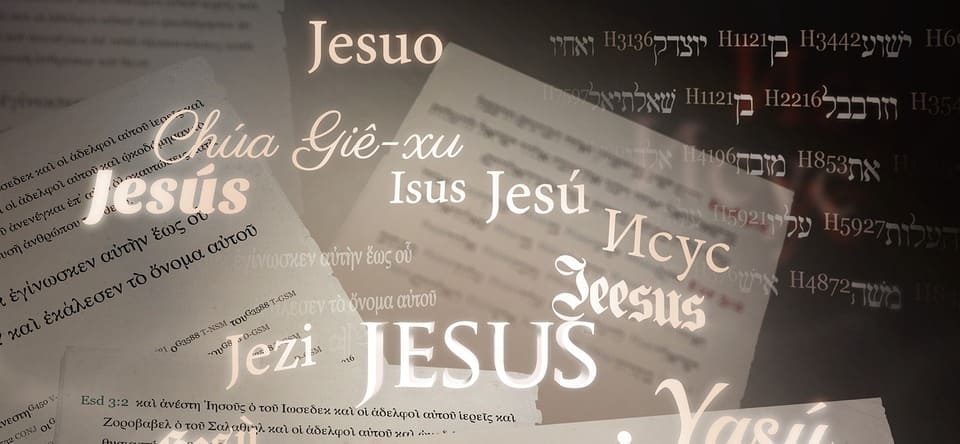
How to Choose the Right Aramaic Translation Service for Your Project
Aramaic is one of the world’s most ancient languages, having been spoken across the Middle East for over three thousand years. Historically, it held significant cultural and religious importance, as it was the lingua franca of large parts of the Near East at various times in antiquity. Today, a number of modern Aramaic dialects are still in use, predominantly among certain communities in the Middle East and in diaspora communities worldwide. Whether you are working on a historical research paper, an ecclesiastical manuscript, a piece of cultural heritage, or even a creative project, finding the right Aramaic translation service is crucial. Here are a few key points to keep in mind when seeking the best provider for your specific needs.
Understand the Complexity of Aramaic
Before you can choose the right service, it helps to understand why Aramaic translations require specialized skills and knowledge. Aramaic can be roughly divided into distinct historical phases (e.g., Old, Middle, and Modern Aramaic) as well as regional dialects. A translator who works with a modern Aramaic dialect such as Assyrian Neo-Aramaic may not necessarily be well-versed in Biblical or Classical Aramaic.
Therefore, it is important to ask questions about the translator’s specific areas of expertise. If you need a translation of an ancient Aramaic text—perhaps an inscription or early religious manuscript—ensure the translator has adequate training in that particular script and era. Conversely, if your project involves modern dialects spoken today, you should find someone who is adept in the contemporary forms of Aramaic that remain in actual usage.
Identify Your Project’s Specific Requirements
No two translation projects are ever quite the same. Some projects may require a word-for-word, literal translation of a historical text, while others might prioritize a more interpretive and culturally relevant rendition. Likewise, the demands of a religious document will differ markedly from those of a marketing brochure or a research paper. Clearly identify the nature of your source text, its intended audience, and the style of translation you need.
For instance:
- Historical or Literary Texts: A translation of this sort calls for a service skilled in ancient languages and knowledgeable about historical context.
- Religious or Liturgical Texts: If your text is used in a religious context, cultural nuance and theological accuracy become paramount.
- Modern Dialects and Media Content: If you plan to reach modern Aramaic-speaking communities via promotional materials or websites, you’ll want a service aware of contemporary linguistic usage.
Once you have a clear vision of your requirements, it becomes easier to seek out a translator or agency that aligns with those needs.
Check Qualifications and Expertise
When selecting a translation service, look for specialists who are either native speakers or possess long-term immersive experience in the dialect of interest. Alternatively, for ancient texts, you want to ensure the translator has an academic background—preferably with advanced degrees in Semitic languages or a track record in epigraphy, religious studies, or Near Eastern linguistics.
You can start your search by:
- Verifying Professional Memberships: Membership in organizations such as the American Translators Association (ATA) or academic institutions focusing on Middle Eastern languages can be a good indicator of professionalism.
- Reviewing Portfolios: Some translators post samples of their work or have references you can consult to get a sense of their style and accuracy.
- Asking for Recommendations: Scholars, clergy, or cultural organizations that have used Aramaic translation services in the past can often provide helpful referrals.
Evaluate Turnaround Times and Workflow
Translation, particularly of ancient or rarely spoken languages, can be a time-consuming process. If your project is urgent, discuss deadlines early on with the service provider. At the same time, take a close look at their workflow. A high-quality Aramaic translation often involves more than a single translator—it might require proofreading by a second expert, back-translation (where a separate translator translates the text back to the original language to check consistency), or even consultation with subject-matter experts (like historians or theologians).
By understanding the workflow and timeline, you can avoid unrealistic deadlines or rushed translations that compromise quality. Also, clarify how revisions or edits will be handled and whether these are included in the initial fee.
Discuss the Project’s Budget and Payment Structure
Costs for Aramaic translation services can vary widely, depending on the intricacy of the text, the translator’s level of expertise, and the urgency of the project. Some service providers charge per word, while others have project-based fees that account for research time or specialized consulting. Make sure you have a clear quote and payment agreement in writing.
A very low price might be tempting if you are working within a tight budget, but be cautious. Ultra-low rates can sometimes indicate less experience or a lack of thoroughness. Paying for a highly accurate translation upfront is often more cost-effective than trying to correct errors later.
Ensure Clear Communication
Throughout your engagement with a translation service, maintain open lines of communication. Provide them with context about the text’s purpose, the target audience, and any specific requests. A misunderstanding about the goals of a project often leads to translation challenges. The best translators appreciate detailed instructions and are open to questions or clarifications that arise along the way.
If you’re looking for a robust partner with a wide-ranging network of experts, consider PoliLingua. Our commitment to quality, combined with our access to specialized linguists, can help you navigate even the most intricate Aramaic translation projects—from ancient manuscripts to contemporary media pieces—ensuring that every detail is rendered with care and integrity.







